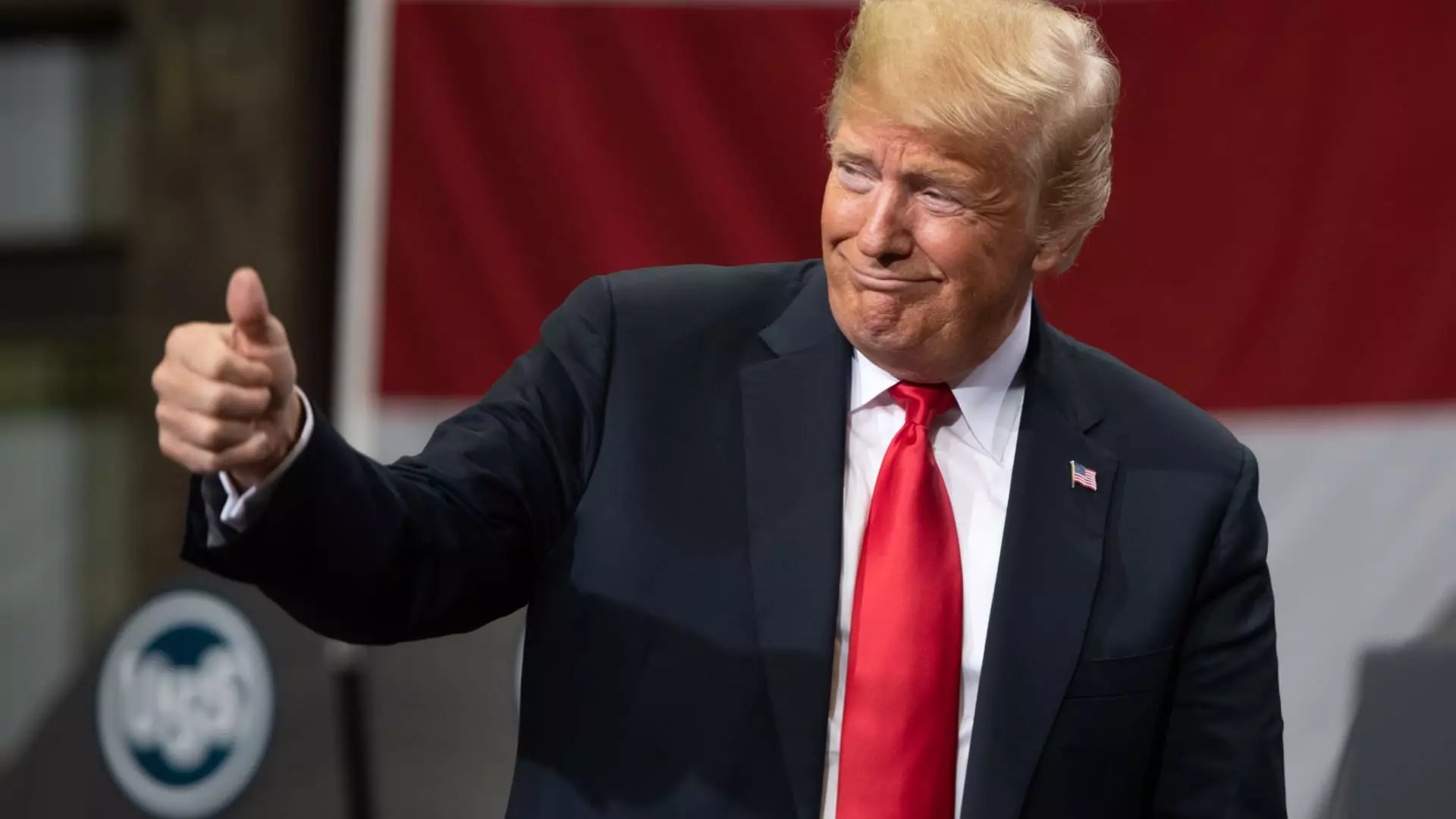In an astonishing twist of fate, those who heed President Donald Trump’s characteristic bravado saw their fortunes shift dramatically yesterday. The president’s audacious declaration touting the stock market as “a great time to buy” was both a powerful rallying cry and a harbinger of market manipulation intricacies. By simply urging the masses via his Truth Social platform, Trump not only showcased his influence but also sparked a stunning uptick in stock prices. This episode underscores a dangerous reality about the intertwining of politics and financial markets, revealing how one person’s words can create a tempest on Wall Street.
As the trading bell rang at 9:37 a.m. ET, Trump’s bold proclamation ignited an immediate buying spree. Minutes later, the president backtracked on recently imposed tariffs, an egregious shift that sent stocks soaring in a historic market reversal. This titanic swing illustrates the fragility of the American stock market, prone to the whims of political machinations. While those who bought in may have enjoyed exhilarating gains, the broader implications of such volatility call into question the integrity of market fundamentals.
Analyzing the Immediate Impact
Investors who jumped ship on Trump’s suggestion saw returns that would likely make even seasoned traders swoon. For example, those who secured shares in the SPDR S&P 500 ETF Trust at $494.11 found themselves riding a wave of prosperity, as values surged to $548.62 by the session’s peak, translating to an enviable 11% spike. Investing $1,000 during that brief window would yield approximately $1,100, marking a lucrative but jittery moment in the market.
Meanwhile, shares of Trump Media & Technology—where his interests reign supreme—also experienced a remarkable surge, reflecting the president’s uncanny ability to leverage his brand. Initially trading around $16.69, shares soared to $20.40 within hours. For those who secured a stake, this translated into an impressive 22.2% profit, once again raising eyebrows about conflict-of-interest implications and the ethical boundaries of such movements.
The Tesla Factor: A Market Showcase
Similarly, the electric vehicle giant Tesla played a pivotal role in this rollercoaster of market mania. Shares climbed an astonishing 22% over the day, showcasing the company’s resilience amidst public scrutiny and protests centered around CEO Elon Musk’s controversial affiliations with government initiatives. When Trump dropped his bombshell at 9:37 a.m. ET, Tesla was at $226.27—by day’s end, it peaked at $274.69. The gravitating influence of Trump’s statements can’t be overlooked. His ability to rapidly shift fortunes, especially in companies entwined with his narrative, should raise alarm bells for regulators concerned about market fairness.
While retail investors paraded their triumphs on online forums such as WallStreetBets, a jarring psychological effect rippled through other market participants. On one hand, exultant traders basked in the glow of newfound wealth; on the other, disillusioned skeptics lamented the apparent ease with which Trump’s proclamations manipulated the market. The line between genuine market sentiment and orchestrated moves blurred, leaving many questioning the moral foundations of their investments.
The Underlying Issues of Market Integrity
Critics have raised valid concerns about the ethical implications of Trump’s sway over market dynamics. Is this a case of insider trading dressed in the garb of political rhetoric? As retail investors grapple with feelings of elation and betrayal, the broader market remains under scrutiny. Just a week prior, steep import tariffs enacted by Trump had driven stock prices southward, revealing an unsettling correlation between his unpredictable policy moves and market declines.
While the market’s immediate response to Trump’s directives may have been euphoric, it brings to light a troubling trend: a marketplace at the mercy of political whims. Investors are left with an unsettling urge to question not just their buying strategies, but the legitimacy of their market existence in a system where the stability of their investments can hinge upon the whims of one individual.
In a time where accountability should trump mere bullish sentiments, the ramifications of Trump’s influence on the stock market reveal a complex interplay of power. As debates swirl about market manipulation, investors are caught in a web of uncertainty, compelled to reassess their strategies amid a political landscape that feels increasingly uncharted. The stock market may remain a tantalizing spectacle, but its authenticity is at a perilous crossroads, affected by the undulating tides of political speech and action.

